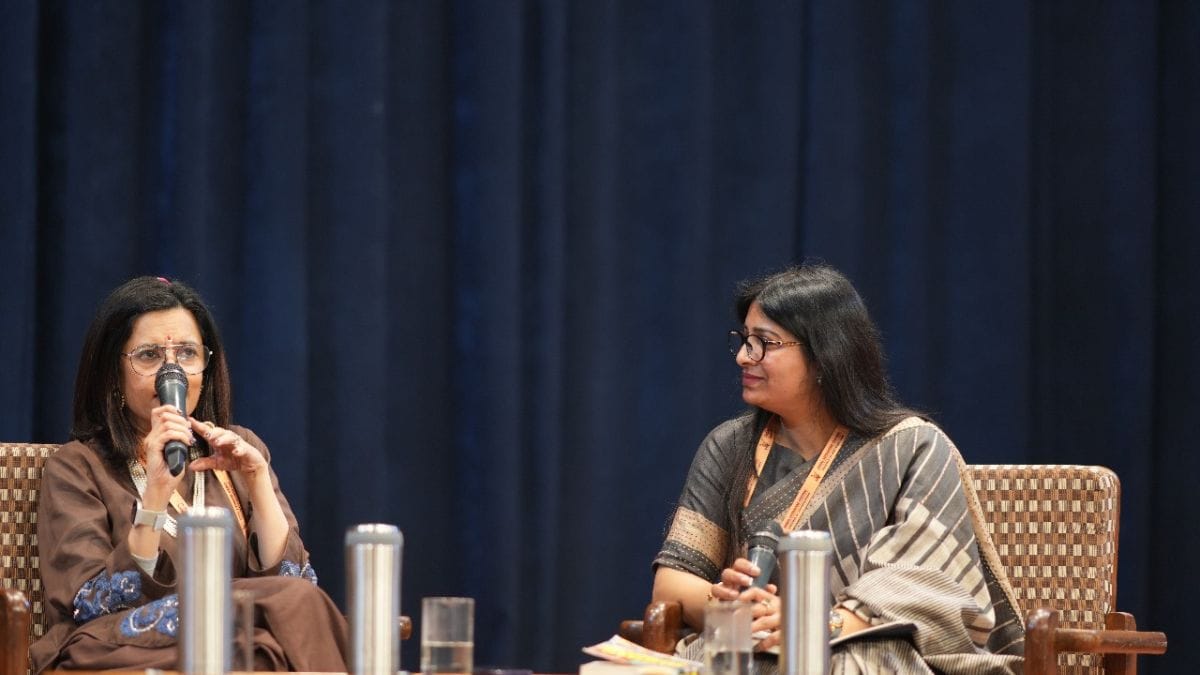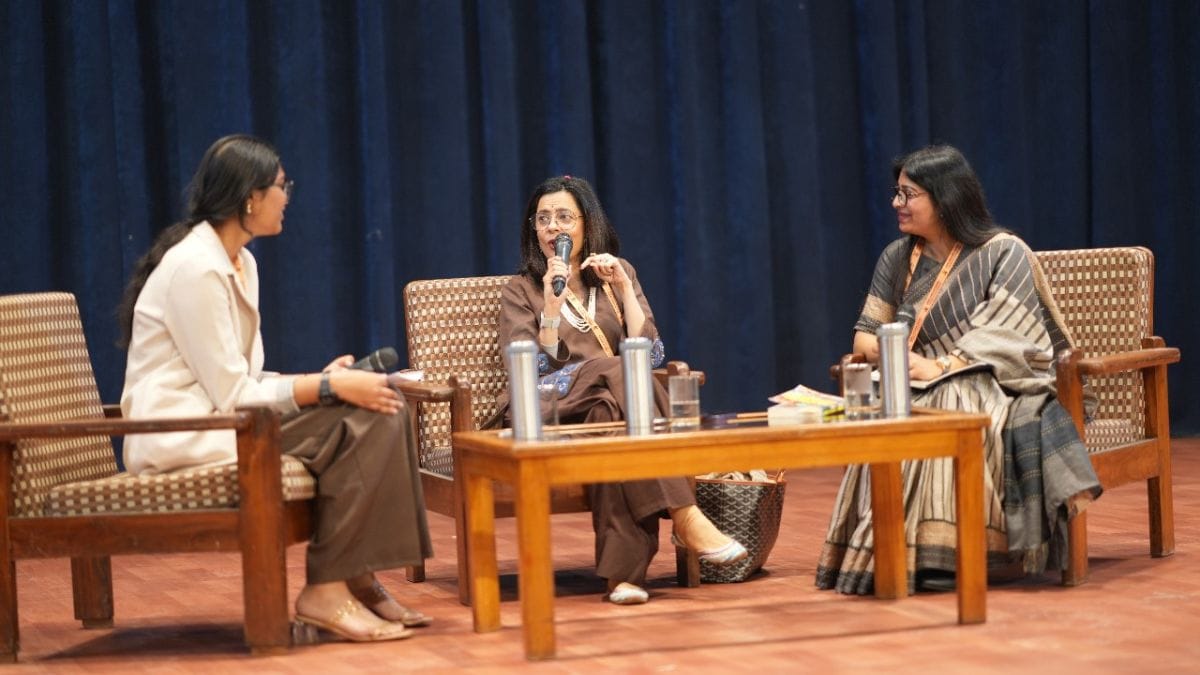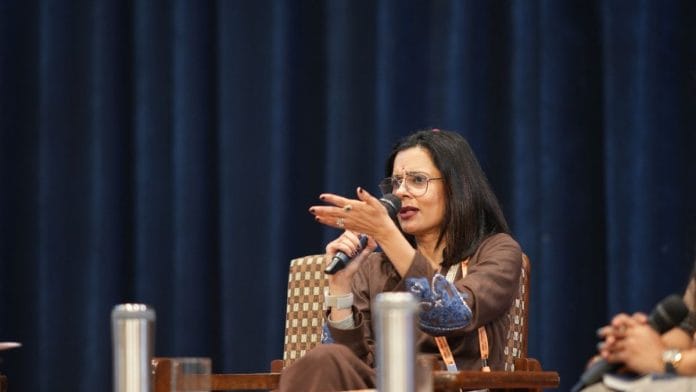Hisar: The digital world can be a treacherous space to traverse because it is difficult to determine what is real and what is not. Most of social media is fake—perfect skin and perfect bodies—creative captions written by AI, influencers hiding subtle marketing in their reels.
It becomes even more treacherous when the hands holding the screen are controlled by an impressionable teenaged mind. Journalist and author Jyotsna Mohan’s book, Stoned, Shamed and Depressed talks about the “secret lives of India’s Teens”, lives which rest on technology, lives that are moving away from real human connections, and which have had to deal with the growing problems of mental health and addiction.
On the second day of the Jindal Literature Festival, Jyotsna Mohan discussed problems faced by Gen Z, accompanied by Vidya Devi Jindal School’s Senior Life Skills Counsellor, Dr Sameena Ansari. Moderating the session, and representing Gen Z, was a student of the school, Sachi Sahewala.
“The reason I wrote this book was that my elder daughter was bullied in school very badly once,” the author started. The incident led Mohan to explore issues faced by the younger generation—the peer pressure, the bullying, as well as the need for adults to take notice.
“This book, in a way, says that if any of you children ever have a problem, there are people that are listening to you,” the author said. Asked about the problems she faced in getting teenagers to open up about problems they may want to keep locked, the author said that it had been a revelation to her, how open the younger generation is, how easily and frankly they talk about things when given the space. “It makes us adults think, what are we doing wrong, that we are not letting them open up,” she mused.

The conversation at the Jindal Lit Fest then turned to the alarming rise of drugs in educational institutions. The author was quick to acknowledge that often adults ignore difficult topics, thereby omitting to inform their children about harmful things.
Talking about mental health, the author said, “Nothing is worth going to an extreme, nothing is so important that you have to self harm, or nothing is so important you get into depression or stop eating.”
Speaking about the pressure that teens feel, from within and from outside, Mohan advised them not to hesitate in taking someone’s hand while navigating the world.
Asked by Dr Ansari about psychological symptoms that teenagers complain about, even imagined ones, the author said: “For a lot of people I would say, step back. Think. Life is not as tough as they are making it out be.”

With the advent of social media and AI, teenagers are exposed to a lot of fake information. “First of all take a step back, and question everything you see—is this right or wrong, what impact is this having on me, should I even be impacted by this, and what good is being impacted?” she said.
Talking to ThePrint at the Jindal Lit Fest about why social media can be such a negative influence, Mohan said: “It is the first generation that has grown up with social media. I mean they don’t know a world where it didn’t exist, so they don’t know it any other way. This is the reality for them. And if that is their reality, then we have to make adjustments. For us to wish it away is all very well but its not going anywhere. And if it’s not going anywhere, how is it that we can best channel it for children because at the moment it is in its starting stage. You have to learn to play the game. And this generation is struggling with it.”
ThePrint is the official media partner for the Jindal Literature Festival.
(Edited by Viny Mishra)






